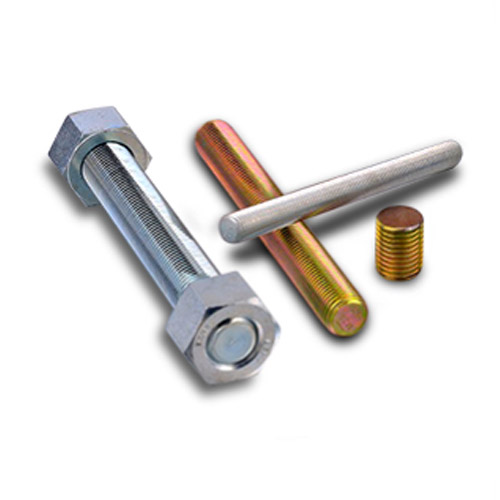8월 . 05, 2024 01:10 Back to list
Exploring the Applications and Benefits of Large Anchor Bolts in Construction and Structural Engineering
Understanding Large Anchor Bolts Essential Components in Construction and Engineering
In the realm of construction and engineering, large anchor bolts are vital components that provide stability and strength to various structures. These robust fasteners are designed to secure large objects to concrete or masonry surfaces, ensuring safety and durability in a multitude of applications—from high-rise buildings to bridges and heavy machinery installations.
What Are Large Anchor Bolts?
Large anchor bolts are typically made of high-strength steel, allowing them to withstand extreme loads and tension. They come in various sizes and configurations, often ranging from 1 inch up to several inches in diameter, and can be several feet long. Their design includes a threaded end for securing fixtures and a non-threaded, embed portion that is often buried within the concrete to provide anchorage.
There are two primary types of large anchor bolts cast-in-place and post-installed. Cast-in-place bolts are embedded in concrete before it sets, providing integral support to the structure. Post-installed bolts, on the other hand, are placed into hardened concrete using various anchorage techniques, such as epoxy or mechanical expansion, allowing for flexibility in design and construction.
Applications of Large Anchor Bolts
Large anchor bolts find application in diverse fields, including commercial construction, civil engineering, and industrial settings. In high-rise buildings, they are used to anchor columns to the foundation, providing essential support against vertical and lateral forces. In the context of wind turbines, large anchor bolts secure the turbine tower to its foundation, resisting the intense forces generated by wind.
Moreover, they are commonly utilized in the installation of heavy machinery, where proper anchoring can prevent equipment movement or tipping, which might otherwise lead to catastrophic failures. Bridges also rely on large anchor bolts to secure various components, aiding in load distribution and structural integrity.
large anchor bolts

Design and Installation Considerations
When designing and installing large anchor bolts, engineers must take into account several factors, including load requirements, environmental conditions, and the material properties of the concrete or masonry. The quality of the concrete mix, curing time, and overall structural integrity play significant roles in the performance of anchor bolts.
Furthermore, proper installation is crucial to ensuring that the anchor bolts perform as intended. Incorrect installation can lead to issues such as bolt looseness, strength reduction, or even catastrophic failure. Therefore, adherence to industry standards and best practices is essential during the installation process. Inspections and testing may also be conducted post-installation to verify that the bolts meet the required strength and load-bearing capacities.
Challenges and Innovations
Despite their importance, large anchor bolts face certain challenges, such as corrosion, which can significantly impact their longevity and performance. To mitigate these risks, various protective coatings and corrosion-resistant materials are being explored. Innovations in anchor bolt technology, including the use of advanced materials and coatings, are constantly evolving to improve durability and performance under varying environmental conditions.
Conclusion
In summary, large anchor bolts are integral components in the construction and engineering sectors, providing necessary support and safety for a variety of structures. Understanding their types, applications, installation requirements, and ongoing challenges is crucial for engineers and contractors alike. As technology advances, the development of more resilient and effective anchor bolts will play a pivotal role in the construction of safer and more durable structures for the future.
-
The Ubiquitous Reach of DIN934 in Application Realms
NewsMay.16,2025
-
Exploring Different Bolt Types
NewsMay.16,2025
-
Cracking the Code of Sleeve Anchor Mastery
NewsMay.16,2025
-
Clamp Design Principles,Types and Innovations
NewsMay.16,2025
-
Artistry Inspired by the Humble Anchor Bolt
NewsMay.16,2025
-
A Deep Dive into Screw Types
NewsMay.16,2025


